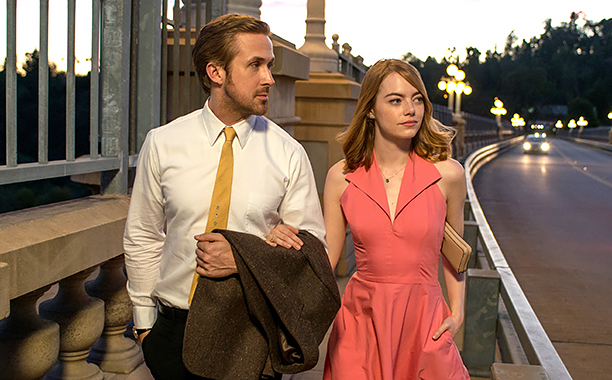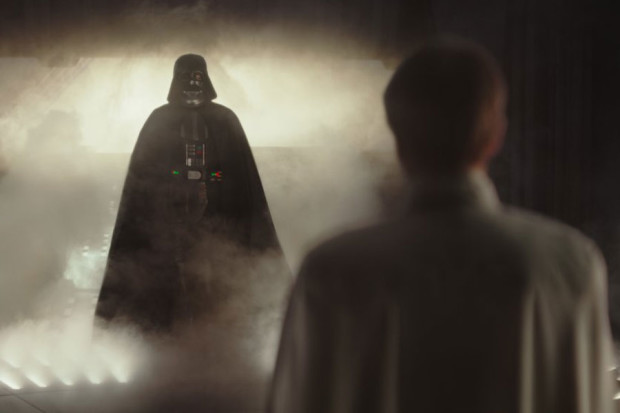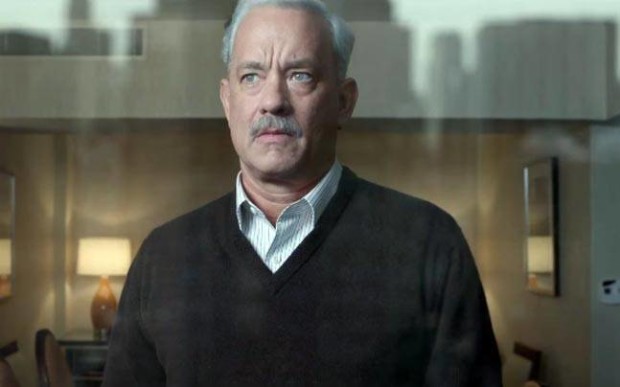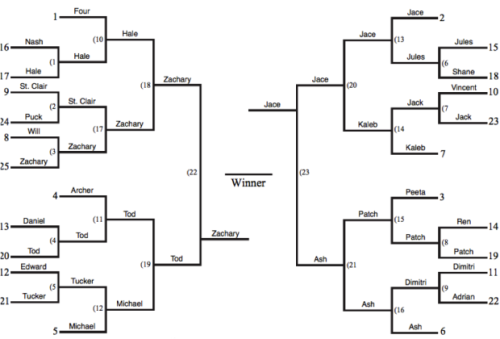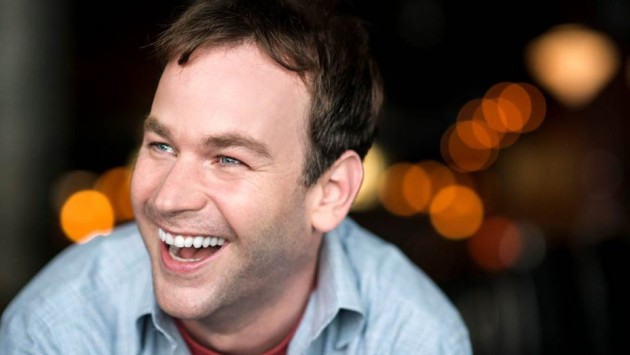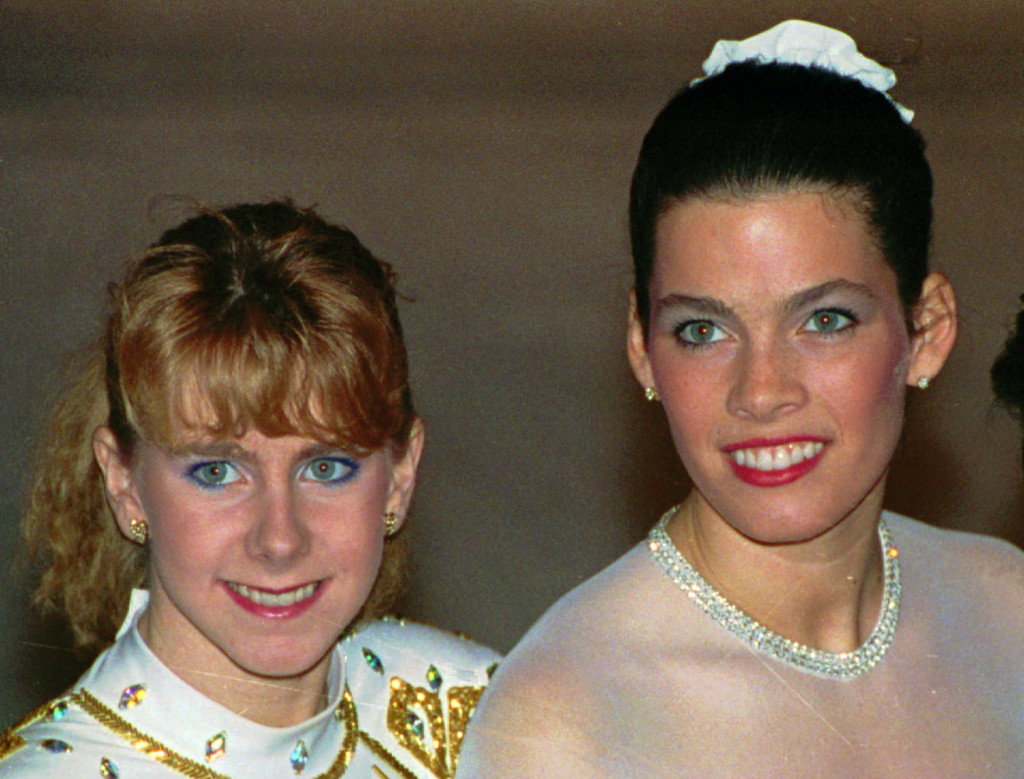Genre: Post-Apocalyptic
Premise: A library custodian is doing just fine as the last person on earth, until a young woman shows up and ruins everything.
About: This one just popped up on the 2016 Black List. Mike Makowsky has written and produced a lot of short films. But this is his first big breakthrough. The project is currently in pre-production and has one of the cooler casting pairings I’ve seen in awhile – Peter Dinklage and Elle Fanning!
Writer: Mike Makowsky
Details: 91 pages
I’ll be honest. My head is in another place right now. As in, it’s less than 48 hours until my Rogue One viewing. I’ve been watching all the interviews, priming myself for the big moment. I even bought white fudge covered Oreos to eat at the premiere in honor of the snow-monster alien in Rogue One, Moloff. Yes, I have issues.
But we have a job here to do on Scriptshadow. And that’s review scripts. And we have a good one today. It’s one of my favorite genres – the post-apocalypse! So let’s see what newcomer Mike Mokowsky has to say in this well-traveled space.
We meet our hero, Del, walking into a house – a house that clearly isn’t is – and casually removing batteries from every electronic device he can find. Del isn’t burglarizing the place. There isn’t anybody left to burglarize.
Nope.
It’s the apocalypse. And Del is the last person left. But unlike most people post-apocalypse, Del doesn’t sit at home all day and fart around. He works. In fact, he’s taken it upon himself to clear all the dead bodies out of town, clean all the houses, and make everything as sparkling clean as possible.
Oh, and retrieve everyone’s late library books.
You see, Del was a custodian at the town library. He’s a man who appreciates order. And he’s about 75% of the way through making this town great again.
That is, until Grace shows up. Grace is 19 and wants one thing – to fuck! Surprisingly, Del doesn’t want to fuck Grace. In fact, he doesn’t want Grace at all. He wants everything the way it was. Him and this town. Del likes being the only sheriff in Dodge.
Grace can’t believe this. I mean, what red-blooded heterosexual male doesn’t want to go pornhub on a pretty young girl? But Grace quickly realizes that Del isn’t like other red-blooded heterosexuals. Actually, Del isn’t like anybody. All he cares about is order.
But Grace gradually charms her way into Del’s good graces. And Del reluctantly allows her to help him finish cleaning the town. Of course, just when things seem to be going well, some outside forces swoop in to screw it all up. But when those forces threaten to take Grace, will Del even give a damn? Or will he finally realize the importance of human connection?
I find that these scripts are very hard to write after the initial setup. I mean, every script is hard to write after the setup. But there’s something about the limited character situation of an “all-alone” post-apocalyptic story that hamstrings it after you’ve roped the reader in with the, “Nobody’s around anymore!” hook.
In many ways, then, these screenplays require the best writers to pull them off. When all you have is two characters, you better know how to write characters and dialogue. And luckily for us, Mike does.
For starters, built-into-the-characters conflict helps. The more different you can make your characters, the better. Because when characters see the world differently, when they have different agendas, they’re naturally going to provide good dialogue. Del likes order. Grace loves chaos. Perfect!
It’s a lot harder if characters like each other and everything is going well. Watch any sitcom to see what I mean. When the characters are at odds (Sam and Diane in Cheers), they’re interesting. The second they get to together, they become boring. It happens EVERY SINGLE TIME.
The other benefit of this is that, even without a plot, you have a built-in story engine. It’s not one of the bigger engines (a goal, a mystery, a chase), but it still works. I’m talking about the desire to see your at-odds characters finally come together. This is what they use in Rom-Coms and it can be used in any love story where the characters are at odds with one another. It requires us to like the characters, of course, but luckily, we love the characters in I Think We’re Alone Now.
And that’s where Makowsky really separated himself. I’m going to beat a dead horse here by mentioning this yet again, but: SPECIFICITY. Specificity in character is one of the ways you can tell a pro from an amateur.
This is why I push you guys to write those character bios, those character backstories. Because the more you know about your character’s past, the mores specific you can make them.
Take Del here. I’m guessing that in earlier iterations of the story, Del’s job was something generic. A desk clerk. A supermarket cashier. The kind of thing every writer thinks of within the first 10 minutes of exploring a character.
But by digging deeper and really trying to figure out what Del’s life was like before the apocalypse, Makowsky came up with this “library custodian” idea. And notice how once you have a job that specific, you can inform the entirety of the character’s motivation, and of the movie itself.
What does a custodian do? He cleans. What does Del do during this story? He cleans up the city. He also collects all un-returned library books from the houses. How brilliant is that? Why is it brilliant? Why does it work? Because it’s SPECIFIC. And it’s specific because the writer did the work.
Another thing I want to bring attention to is the idea that you don’t always have to work in absolutes. We have a tendency, as writers, to write to the extremes. And while sometimes that’s good, you don’t ALWAYS want to do it, or else things feel too dramatic, too over-the-top.
Grace comes from a religious family. Her father was a pastor. She watched everyone in the world die one day. Later in the story, Del asks her, “Do you still believe?”
It’s a somewhat innocuous question. But I’ve read so many scripts where the answer would’ve been something like: “I’ve watched everybody on the planet die. Do I think there’s a God? God is fucking dead.” And then the writer builds Grace’s flaw around that. And in the end of the story, she learns to believe again and blah blah blah.
Instead we get this: “I have no idea. I’m in the market if you’ve got anything good.”
It’s such a kind line and it works because it’s truthful. Sometimes we get so caught up in movie logic and the desire to write that big fat juicy line that we forget what the characters would really say. Oftentimes, the quieter more realistic line would’ve painted a more truthful depiction of the moment. It was stuff like this that made this script stand out.
My only issue with “I Think We’re Alone Now” is the ending. I don’t want to spoil anything so seek the script out if you want to find out what happens. But it felt like it came out of left-field – one of those endings where the writer knew he had to go bigger, and it ended up being too jarring, an unnatural extension of what came before it.
With that said, this is great example of strong character work, of strong dialogue, and a great inspiration piece if you ever want to write your own post-apocalyptic screenplay. Check it out!
[ ] What the hell did I just read?
[ ] wasn’t for me
[xx] worth the read
[ ] impressive
[ ] genius
What I learned: A general understanding of your character is what leads to a generic character. The more specifically you know them, the more specific their character will be.
Waaaaaaaay too much going on right now to put up a regular post. As we get closer to X-mas, I expect things to get even more unpredictable, so I’m warning you now.
With that said, let’s start Mish-Mash Monday off with a big round of applause for our four Scriptshadow Tournament Semi-Finalists!!! You guys fought the long hard battle and here you are, in the Final Four. CONGRATS!
SEMIFINALIST #1
Wild-Card
Title: Odysseus and His Boy
Writer: Steffan DelPiano
Genre: Period
Logline: With only one night to act, two rival soldiers must sneak behind enemy lines to complete a last-ditch suicide mission that will finally put an end to a decade-long conflict.
SEMIFINALIST #2
Wild-Card
Title: Cratchit
Writer: Katherine Botts
Genre: Mystery & Suspense/Fantasy/Horror
Logline: “A Christmas Carol” reimagined, told from the point of view of Bob Cratchit as he and Ebenezer Scrooge race to track down Jacob Marley’s killer — the same killer who now targets Scrooge and Cratchit’s son, Tiny Tim.
SEMIFINALIST #3
#3 seed
Title: The Bait
Writer: Billie Bates
Genre: Romantic Comedy
Logline: An untrusting woman, employed to seduce men prior to marriage for concerned wives-to-be, has her world turned upside down when she falls for her latest target.
SEMIFINALIST #4
#1 seed
Title: The Savage
Writer: Chris Ryan Yeazel
Genre: Historical Biography
Logline: The incredible true story of Squanto, the Patuxet Indian who was kidnapped from the Americas as a child and who then spent his life fighting impossible odds to return home, setting in motion a series of events that leads to one of the most significant events in American history.
We’re going to wait three weeks to get to the semis with next Friday being Rogue One, the week after being Christmas, and the week after that being New Years. So take advantage, semifinalists, and make any last changes to your script you need to make!
Next up, I want to talk me some Rogue One. Because Rogue One that’s why!!
Star Wars’s little brother had its premiere on Saturday and will be hitting theaters Thursday night. I will be seeing the film then and reviewing it this Friday. If you go off of tweets like these, you’d think this was the next coming of Empire Strikes Back.
But these post-premiere Tweet Parties always leave me a little suspicious after the infamous Fantastic Four Atlanta premiere. I get the feeling there’s some wink-wink nod-nod disclaimer everyone signs that states, “Unless you absolutely love the film, you’re not allowed to tweet about it.”
How else did not one negative tweet about the film surface? I mean there are reviewers out there who literally hate everything. Where are their Star Wars tweets? And this movie was plagued with a TON of issues. Every single film checkpoint movies are supposed to hit, Rogue One was several months late on. So I’ll continue to wait and try to stay optimistic.
On to something I’m not optimistic about – Sully.
I finally saw this film. As you guys remember, I hated that this movie got made. I said it again and again – THIS IS NOT A FILM. A pilot crash-landing a plane due to a bird strike where everyone lives and is fine IS NOT A FILM. You know what a film is? When you crash land in the Andes, don’t have any food, AND HAVE TO START EATING EACH OTHER. That’s a film.
So lo and behold, after watching the movie, imagine how surprised I was to find out…
IT WASN’T A FILM!
This movie was effing awful. Like HAD NO REASON TO EXIST awful. The whole thing is exactly what I knew it would be. Captain Sully looking overwhelmed or constipated, combined with the crash-landing. I heard they had given us six versions of the crash to maximize the impact of what had happened. That wasn’t true. They gave us six versions of the crash BECAUSE THERE WASN’T ANYTHING ELSE TO SHOW!
The main character was boring as shit. The aftermath of the crash itself was without incident. There was NO DRAMA. None. Don’t get me wrong, they tried to create some with this artificially constructed nonsense of the FAA trying to paint Sully’s choice as a mistake. But WHO THE FRICKIN HELL BELIEVED THAT? How easily manipulated do you have to be to buy into a writer trying to sell you that nonsense? That Sully could end up disgraced as opposed to a hero?
The fact that this film received an 85% on RT is a joke. Every reviewer who gave this a positive review needs to revoke their credentials until they read 100 screenplays and understand how this medium works. Not to mention all of Eastwood’s movies feel like they were directed by a 174 year old man.
Oh, and by the way, Sully. You just saved 155 people. Would it be asking too much for you to smile once inside of 2 hours??
Oh my God was this movie bad. [x] What the hell did I just watch.
Finally, I’m getting intrigued by this Oscar race. It’s the first time in a decade where there’s no clear front-runner this late in the year. I mean, let’s be honest. They plan out who wins these things well in advance. And this January, the decision was made that it would be Birth of a Nation. When that film and its messy background imploded, everyone was like, “What do we do now??”
People really want La La Land to take the lead. And it might. I don’t click with Chazelle’s writing but the guy has a nice directing eye for sure. It’ll depend on the songs and if the soundtrack takes off.
Also, because the Oscars wants so badly to right its #Oscarssowhite image from last year, they’re desperately trying to find that Birth of a Nation replacement. Moonlight appears to be the leading candidate. But every time I see promotional material for that film, a man is holding a kid in some water. I can’t think of an image less likely to make me want to see a film.
Lots of people like Hacksaw Ridge. But I don’t think Hollywood will ever truly forgive Mel for what he did. With that said, Gibson tells a funny anecdote about a recent interview with Anderson Cooper he did regarding the film. Cooper cornered Gibson with the question, “You know people are loudly booing when your name comes up in the opening credits. What do you think about that?” “They’re loudly booing when?” Gibson asks, “in the opening credits?” “Yes, people loudly boo when your name comes up in the opening credits.” “Oh, that’s interesting, there aren’t any opening credits in the film.”
Say “ouch” if you’re Anderson Cooper.
Have you guys seen any of these films? What’s your take? I trust you more than these Rotten Tomatoes guys, that’s for sure. And who’s your leading contender for the Oscar?
Oh, and Black List announcements today at 9am! Hope to find some new gems. :)
THE WINNER HAS BEEN ANNOUNCED BELOW
The final week of the Quarterfinals is upon us! After Sunday, we’ll have the FINAL FOUR!
The Scriptshadow Tournament is the only screenplay tournament in history where you, the readers, vote on who wins. We started with 500 entries. Based on logline and pitch, 40 of those were chosen by myself to compete in the tournament. Those were whittled down to 12 Quarterfinalists. Of those 12, 3 have been chosen for the Semifinals. This is the last Quarterfinal round, and therefore will reveal the final Semifinalist.
Here’s how this works. Read as much from each script as you can. Then vote in the comments section which script you think deserves to go into the Semifinals. Please explain why you voted for the script so that we know you’re a real voter and not a friend of the writer or screenplay voting bot. As always, I’ll leave it up to the writers to decide if they want to summarize their changes in the comments.
Voting closes at 10pm Pacific Time Sunday evening, when the winner will be announced.
Good luck everybody!
#1 SEED
Title: The Savage
Writer: Chris Ryan Yeazel
Genre: Historical Biography
Logline: The incredible true story of Squanto, the Patuxet Indian who was kidnapped from the Americas as a child and who then spent his life fighting impossible odds to return home, setting in motion a series of events that leads to one of the most significant events in American history.
#8 SEED
Title: Thrills, Kills and Scotch
Writer: Mayhem Jones
Genre: Drama/Psychological Thriller
Logline: A psychopathic magazine editor copes with the hiring of an old rival by killing a fashion model in a twisted revenge plot..
WILD-CARD
Title: Divide and Connor (formerly “Breaking Them Up”)
Writer: David Waddell
Genre: Comedy
Logline: Convinced that his constantly feuding parents are headed for a divorce, a 14 year old sets out to find new lovers for his mom and dad in hopes of ending their marriage.
WINNER OF QUARTERFINAL WEEK 4: Wow. Another freaking close race. And I’m not surprised. There’s been a lot of love for Chris and David’s scripts from the beginning. This is the first week that I’ve had to use a rule to decide the winner. I know one last reader voted for Divide and Connor last night. But it did come after 10pm pacific time. For that reason, the script moving onto the semifinals is… The Savage by Chris Ryan Yeazel! Congrats to Mayhem and David for making it this far. I know David, in particular, is taking this hard. Don’t sweat it, brother. You’re a really good writer. Make sure to enter the Shorts Contest! Maybe we’ll end up turning your short into a movie. Moving on, next Friday is Rogue One review and the Friday following that is Christmas. Then the Friday following THAT is New Years. So the first semifinal post will be January 6th. Seeya then!
So I want to share a rare experience with all of you, something that doesn’t happen to me often these days. I sat down to watch a movie, and for the next 100 minutes was completely unaware that I was watching a movie.
In my reality, everything is analyzed. Even if I don’t want to analyze, I analyze. Oh, what a perfect setup for that character. Oh, what a terrible way to open that scene. No! You could’ve milked that moment so much longer. Ugggh, you should’ve focused the story on this character. He’s so much more interesting!
None of that happened in this movie. What movie am I talking about? It’s Mike Birbiglia’s film, Don’t Think Twice (Here are Mike’s six tips for making it in Hollywood). It’s about a long-time improv group, all of whom are in their 30s. When their improv space closes down, they have to face the reality that maybe this is it. Maybe they need to go out into the real world and give up on their dreams.
Things go sideways when the flashiest member of the group, Jack, becomes a cast member on Weekend Live (a “Saturday Night Live” stand-in). Not only is there all this pressure on Jack to succeed. But there’s pressure on him to bring his friends up with him. In the end, that pressure becomes too much for everybody and… well, I’ll let you watch it yourself to find out what happens.
So what made this experience so impactful?
One thing: The characters.
Whenever I see a writer pull great characters off, I take a good two hours afterwards to digest it all. Because character-creation remains the single most difficult thing to do in screenwriting.
Anyone can create characters. You think of a person then give them a name. And sadly, that’s how most screenwriters approach character creation. But to build characters who move you? Who leave you in tears? That’s the real test.
How did he do it? How did Mike Birbiglia move someone who’s used to all the tropes and sees them coming from a mile away? Let’s see if we can shed some light on that question.
First of all, there’s no question that the performances in “Don’t Think Twice” were amazing. I know it doesn’t help us as screenwriters to say that. But we can’t deny that that’s part of it. However, actors can’t make chicken salad out of chicken shit. They need a foundation to start from. And if the foundation of their character isn’t in the script? Forget about it.
One thing I noticed is the same thing I was talking about in Isle of Man, which is this notion of specificity. Specificity isn’t listed in most character creation articles because it’s more of a peripheral thing. But boy does it have an effect on the finished product.
Just like Younger knew the motorcycle racing world and the people in it like the back of his hand, Birbiglia knows the improv world and the people in that universe like the back of his entire body. I wouldn’t be surprised if these characters were amalgams of many people he’s known in the community for years.
The girl who’s working on that graphic novel for the ninth year and who everybody knows will never finish it. The guy where improv comedy is the only thing he has in his life. The teacher who teaches all these successful people, yet isn’t successful himself. The girl who can’t get out of her own way, sabotaging every chance at success she gets. The woman who’s gotten a free ride from her rich parents her whole life and has never known the meaning of hard work.
Specificity is the fruit of write-what-you-know’s labor. It isn’t so much the world that matters when you write what you know. But the characters, since those characters will be based on the types of people you’ve had personal experiences with. That’s what makes them SPECIFIC.
And the more specific you can make a character, the more we will believe that they’re real. And the more we believe that they’re real, the more we’ll root for them. And the more we root for them, the more emotionally devastated we’ll be when they don’t achieve what they set out for.
With that said, specificity is not about reams of character detail. It doesn’t mean that a character has to do something specific and unique on every single page. It merely means that the character is specific to the world they’re in. That they feel true and honest and not “made up” by a writer who’s clearly never stepped foot in the world he’s writing about.
If you look back at my above character descriptions, they don’t go for pages on end. They’re each simple and to-the-point. “The girl who can’t get out of her own way, sabotaging every chance at success she gets.” Not enough screenwriters do this – come up with that single specific sentence that identifies their character. As a result, they’re never sure who that character is. And you can feel that when they write them. You can feel that they’re searching for that character all the way until the final page.
There are other things going on here as well. These are all underdogs (an underdog is one of the easiest ways to get an audience to root for your character). They weren’t the popular kids at school. They were the nerds. And this is their only chance at becoming the popular kid. And you can see how much they want that. And because they want it, you want it for them.
But there’s something new I found in this movie. And this is going to sound cheesy, but I believe there’s something to it. The power of friendship. When two or more characters love each other, it’s like they double the power of the characters as individuals.
Because we don’t only want the character to succeed for themselves. We want them to succeed for their friend. We saw this on display in one of the greatest movies ever made – The Shawshank Redemption – with Andy and Red. Each of them were wonderful characters individually. But, in the end, it was that we wanted them to win together. That’s what sparked our tears when they meet up in Zihuatanejo in that final shot.
And I saw that here with this group. You got the sense that they all loved each other and it was “them against the world.” So when Jack makes it and that results in the group fractioning off, the engine that drives the story isn’t a goal, like we traditionally talk about on Scriptshadow, but rather our desire to see the group get back together, to be happy again.
I haven’t come up with a definitive model on how to do this, but they used it for the last fifth of “Shawshank Redemption,” after Andy escapes. And they used it for the last third of “Room,” where “Ma” was placed in a mental hospital. These are two of the most emotionally powerful movies in history, which is how I know this is something worth looking into further.
Finally, I’m a huge believer that a movie must end on some form of hope. You can take us to the lowest of lows, rake us through the shitshow of life. But if you don’t provide us with some sort of hope at the end – no offense to you or your writing, but fuck you. You wasted 2 hours of our lives.
The best part about “Don’t Think Twice” is that it’s able to provide us with hope without selling out. By “selling out” I mean not everyone gets on Weekend Live. Instead, the group goes its separate ways. And yeah, some of them quit improv. But everyone’s got a plan. Everyone’s going to keep fighting this complex ever-changing organism called life. And that’s all we need from an ending. To know that the characters aren’t going to give up on the world.
It capped off one of the most poignent and moving films of the year. Check it out if you haven’t already, and share you character observations in the comments.
Genre: Biopic? Comedy?
Premise: The infamous true story about how figure-skating protege Tonya Harding conspired to win the Olympics by having her competition, Nancy Kerrigan, violently attacked.
About: I, Tonya is the number one script on The Tracking Board’s “Hit List,” a list of the best spec scripts of the year, and a good indicator of what to expect when the Black List comes out next week (A quick shout out to the number 2 writer, Nick Yarborough, who I’ve known for four years now – I remember when he was out there hustling with every new screenplay – good job, Nick!). I, Tonya is a departure for writer Steve Rogers, who’s best known for romantic fare like P.S. I Love You, Hope Floats, and Kate & Leopold. In maybe one of the strangest casting choices I’ve heard all year, supermodel-esque Margot Robbie will be playing Tonya Harding. Um, okay.
Writer: Steve Rogers
Details: 106 pages
Does anybody really understand the Olympics?
Who came up with this “every four years” idea anyway? Not sure what the Olympic masterminds were thinking on that one. I mean yeah, that may have made sense back in 1608 when it took 4 years for everyone to actually travel to each Olympic host country. But we live in a world now where we can be anywhere within 2 hours. 4 years seems like overkill, no?
And then there’s the whole, “It’s only for amateur athletes” thing. Which means that the ultimate test in sports doesn’t include the best athletes in the world (professionals).
Except for in some events, where professionals ARE allowed.
Oh, gotcha. So it’s only for amateurs except for sometimes when it’s for professionals. Makes total sense. Pardon me for the misunderstanding.
Here’s one of my favorite parts. We prop up athletes like Michael Phelps as “the best athletes in history” because they win 8 gold medals every Olympics.
Oh, but here’s a small detail no one seems to acknowledge: SWIMMERS GET TO COMPETE IN 90 EVENTS! I mean, of course they win 8 medals. They have 20 times more chances than everyone else. I’m sure LeBron James would win more gold medals if he was allowed to compete in more than 1 event.
Who comes up with this stuff?
Let’s go back to a simpler time. A time when the Olympics were pure. Where Olympic figure skating hopefuls could hire mob goons to whack their opponents. I’m talking about the infamous battle between Tonya Harding and Nancy Kerrigan.
“I, Tonya,” starts out in… I guess I would call it “mockumentary” style, with modern day interviews from Tonya Harding, her thuggish former husband, Jeff Gillooly, Tonya’s despicable mother, Lavona, and Tonya’s prissy coach, Lavona.
Tonya and her crew lay out what it was like for Tonya growing up. For those who don’t know, Tonya was unabashedly white trash. Her chain-smoking bitch of a mom (who had four kids from five marriages) recognized that Tonya was a talented ice skater and bullied her way into the figure skating clique to get Tonya the proper training.
Because Tonya was so poor, she was looked down upon by the skating community. But no one could deny that she had historic talent. When Tonya reached her teens, she was the only female American in figure-skating history who could pull off the triple-axel. So the U.S. figure-skating team had no choice but to take her on.
Tonya ended up marrying the thuggish Jeff Gillooly, who quickly started beating her, just like her mom did. As Tonya tells us, all she knew growing up was violence, which would foreshadow the infamous decision she made (or “allegedly” made) to solve her competition problem by resorting to violence.
Anyway, after watching Tonya grow up amongst all this chaos, we finally get to the nitty-gritty, the attack on Nancy Kerrigan at the U.S. Nationals leading up to the Olympics. This is where things get confusing.
Giloolly’s best friend, weirdo Shawn (a man who claimed to be a counter-terrorism expert despite nobody being able to find any evidence supporting the claim), was supposedly asked by Giloolly to scare Kerrigan away from competing. But Shawn took that to mean he had free rein to do what he wanted. So he hired some goon named Shane Stant to cripple Kerrigan with a bat (the aftermath which can now be seen in the famous video of Kerrigan on the ground crying, “Why me???”).
The last 30 pages of the script chronicle the aftermath, as everyone attempts to figure out who ordered the hit, and if Harding knew anything at all. Unfortunately, we don’t get any definitive answers. Everyone has a different version of how things went down. And to this day, Harding denies any involvement in the attack.
“I, Tonya” is a classic “end of year” list script. It’s a dark comedy that jumps between having fun with its subject’s white trash roots (Tonya: “I won my first competition before I was 4. Those bitches didn’t know what hit’em.”) and going dark with a healthy dose of violence (coming from both Tonya’s husband and mother).
For that reason, the finished product will be a wild card. There is no tone harder to nail than dark comedy. And while it seems to be celebrated annually on these lists, it rarely does well on the big screen. The Beaver, The Oranges, Butter. The director has to have a deft touch and be in lock step with what the writer intended. And we all know how often the director and writer are in lock step.
As a script, however, I liked what Rogers did. I always say to find fresh ways into tired genres, and there’s no genre more tired, at this moment, than the biopic. So to write one that doesn’t take itself so seriously? That uses the mockumentary style? Not a bad call.
The stuff that works best is the buffoonish Gillooly and his insane best friend, Shawn. When they attempt to put together a plan to take out Kerrigan, it’s true lunacy. Imagine Carl and Gaear from Fargo but 200 times dumber. Details like Shawn’s hitman choice, Shane, stalking Kerrigan at the rink for 3 days before realizing the skater was in a different city were classic.
But here’s where I differ with I, Tonya’s approach. They should’ve explored the craziness more. You have this grade-A idiot doing 3 days of “recon” in the wrong city, and that moment is relegated to a throwaway line in an interview? Imagine if we would’ve been with him and his clueless partner during these scenes?
Once “I, Tonya” commits to this mockumentary format, it digs in and never lets go. This results in a staccato like storytelling style where there are no actual scenes. Just recollections of events peppered with lots of interview interjections. That was fine at first, when we were setting up the story. But when somebody’s still interrupting fun moments on page 75? Kill me now.
I’m not saying that can’t work. But, up until this point, it’s only been proven to work with pure comedy, like the Spinal Taps of the world.
“I, Tonya” wants to tackle some pretty intense stuff (we actually see Gillooly punch Tonya in the face at one point). And those moments deserve to breathe. To always cut out of them to an interview answer: “He liked to hit me a lot,” felt disingenuous. And I don’t just say that because I like writing the word “disingenuous.”
I really wanted to like this. I thought I, Tonya could’ve done for biopics what Deadpool did for superhero flicks. But the deeper I got, the less confident I felt that the script knew what it was doing.
Maybe I was expecting something more like (HBO Tennis mockumentary) “7 Days in Hell.” But “I, Tonya” came off a lot like the person it covered – an outsider that didn’t know how to fit in.
[ ] What the hell did I just read?
[x] wasn’t for me
[ ] worth the read
[ ] impressive
[ ] genius
What I learned: If you’ve got a great scene or great character in mind, but they don’t fit into your original vision for the script, rethink your vision so you can get them in there. These bumbling idiots who Shawn hired to take out Kerrigan felt like they deserved their own movie. Instead, they get one and a half scenes and a few references in the dialogue. It’s so hard to find anything that sticks with a reader. So when you’ve got gold, through hell or high water, find a way to get that gold in your screenplay, regardless of the difficulty.



